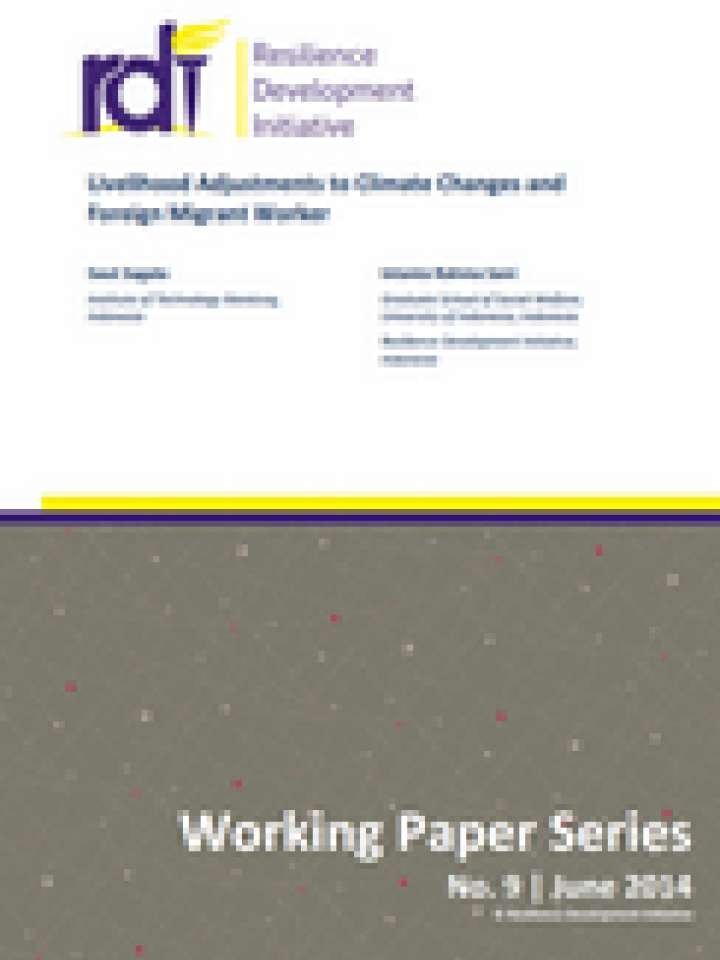Livelihood adjustments to climate change and foreign migrant worker - working paper no. 9
This paper explores the impact of climate change on livelihood options that affect migrant workers in Indramayu District, Indonesia. In this paper, migration is considered as an adaptation measure used by affected community members facing the challenges of climate change. The challenge emerges due to the interaction of several factors including the vulnerability of the region, government policies, demands of migrant workers, and social networks among migrant workers that contribute and encourage high temporary migration. A case study drawn from Indramayu District, Indonesia, the second poorest district in the province, demonstrates high remittances from migrant workers as a livelihood option.
The research considers the experiences of ex-migrant workers (TKI) who are either ex-farmers/fishermen or close families of farmers/fishermen. Applied qualitative surveys explore environmental changes affected by climate change on livelihoods such as drought, floods, tidal wave, and sea level rise, and their impact on their reasons to become migrant workers. The paper concludes that the opportunity of being migrant workers abroad provides an alternative livelihood option for residents which have been highly affected by climate change impacts. It is therefore important, for national and local government to understand this climate change adaptation measure and to develop policy to support migrant workers affected by climate change.
Explore further
